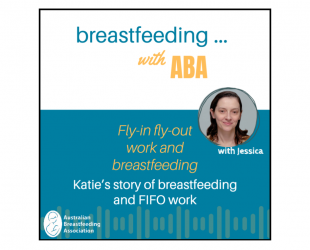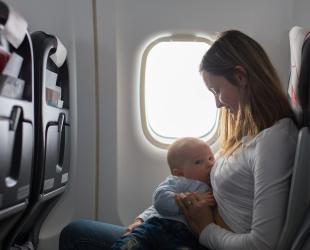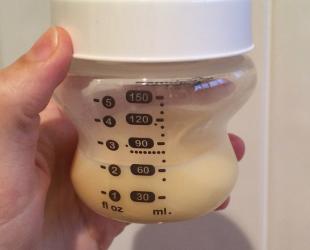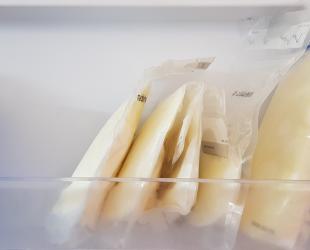Planning to fly? Find out what you can and can’t take on board.
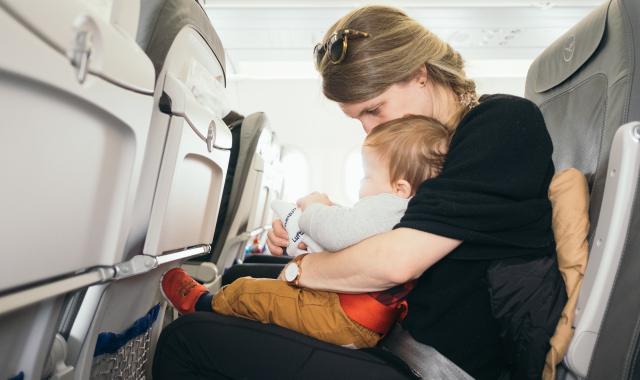
If you are planning to fly, you need to be aware of the various international and domestic rules that may apply to you.
If you're taking expressed breastmilk (EBM) on board with you, you may not realise that there are restrictions. And you probably won't even know where to find information on this.
This information is about the requirements when travelling with EBM or bringing EBM into Australia.
Air travel with EBM within and out of Australia
Guidelines on international civil aviation standards are determined by the International Civil Aviation Organization (ICAO), a United Nations specialised agency that manages the administration and governance of the Convention on International Civil Aviation. Member states are responsible for implementing guidelines within their own countries, so if you are travelling with EBM internationally, you should check national rules before you travel.
In Australia, the Department of Home Affairs is responsible for carrying out the ICAO guidelines and controlling who and what crosses the border. Their website sets out information on travelling with or without infants, as it relates to EBM. The website indicates the following for domestic flights and international flights departing from Australia:
Carry-on baby products
Domestic flights
There are no restrictions on the amount of powders, liquids, aerosols and gels you can take onboard a domestic flight for a baby or infant. However, if you are connecting to an international flight or if your domestic flight is departing from an international terminal, limits apply.
International flights
You are allowed to carry onboard a reasonable quantity of inorganic powder, liquid, aerosol or gel items for a baby or infant for international flights. Pack only what you need for the duration of a flight and any delays that may occur. There are no quantity restrictions for organic powders such as powdered baby formula.
Baby products allowed may include, but are not limited to:
- baby milk, including expressed breast milk and powdered formula
- sterilised water
- juice
- baby food in liquid, gel, powder or paste form.
What is a reasonable quantity?
Security screening officers have the final say about a ‘reasonable quantity’. You may need to surrender some of your baby items if it has been decided that it is an excessive quantity of inorganic powder, liquid, aerosol or gel items for the flight.
If travelling without a baby
You may only take expressed breast milk onboard an aircraft (in your carry-on bag) in containers of 100mL or less and no more than 1L in total. It must be contained in a transparent, re-sealable plastic bag where the four sides add up to no more than 80cm (e.g. 20x20cm or 15x25cm).
Expressed breast milk in larger volumes may be carried in a suitably insulated container in checked baggage. (There are no restrictions on powder, liquid, aerosol or gel items for checked baggage).
Entering Australia with EBM
There may be occasions when a mother needs to bring EBM from another country into Australia. In relation to what can be brought into Australia, The Department of Home Affairs website states:
Breast milk is permitted if it is for the personal use of infants under the care of the person wishing to import the breast milk in quantities no greater than 10 litres or 10 kilograms.
Importing human milk into Australia
The Australian Department of Agriculture implements biosecurity controls at Australia’s borders to minimise the risk of exotic pests and diseases entering Australia and to protect Australia’s agriculture export industries, unique environment, native flora and fauna, as well as tourism industries and lifestyle. The Department’s Biosecurity Import Conditions system (BICON) outlines import conditions for thousands of products. You can type in breastmilk or human milk into the search engine of this link to find the requirements for the importation of human milk and human milk products for human consumption. From here you can input two yes/no answers on whether the human milk is for personal or commercial use and, if for personal use, whether the infant who will receive the human milk is with you.
Human milk and human milk products (Effective: 04 Dec 2019)
a. A Department of Agriculture import permit is not required.
b. The goods must be human milk only.
c. The goods must be being imported for use by infants under the care of the importer and must not have been sourced from donors and/or a commercial enterprise.
d. The goods must be imported for personal use and must be imported in quantities of no greater than 10L or 10kg.
e. On arrival in Australia, the goods must be accompanied by the importer and an infant.
a. A Department of Agriculture import permit is not required.
b. The goods must be human milk only.
c. The goods being imported must be for personal use, specifically for use by infants under the care of the importer.
d. The human milk must meet the following import conditions:
To demonstrate compliance with this requirement you must present the following on an importer declaration:
1. A statement that the milk has not been sourced from donors and/or a commercial enterprise, and
2. A statement that the milk is in a quantity of no greater than 10L or 10kg.
(Further information on Import Declarations can be found on the Department of Home Affairs website)
Import conditions have not been developed for this specific commodity and situation. If imported into Australia, the goods must be exported or destroyed. For further information contact the Import Services Team at imports@agriculture.gov.au or call 1800 900 090.
Discrepancies in International rules regarding travelling with EBM versus powdered infant formula
ABA has identified the following inconsistencies regarding rules related to i) travelling with EBM versus powdered infant formula and ii) travelling with or without a breastfed baby:
i) There is no limit on the amount of powdered infant formula that can be taken on-board but EBM is limited to a 'reasonable amount'. This poses a risk (eg in the event of flight delays) to breastmilk-fed babies whose mothers have insufficient supplies of EBM and limited chances to express. The decision about what a ‘reasonable amount’ lies with airport security screening officers.
ii) While mothers travelling with their baby can take a ‘reasonable amount’ of EBM on-board, an expressing mother travelling without her baby can only take up to 1 litre on-board in clear containers of no more than 100 mL each. While mothers can place unlimited quantities of EBM in their check-in luggage, because EBM is so labour intensive to produce, most women prefer to keep it with them.
Given these inconsistencies, ABA has sought:
- Advice from the Minister for Home Affairs about the training staff receive to make decisions regarding what constitutes a ‘reasonable amount’ and offered to provide information that could assist in this decision-making process.
- Agreement from the Minister for greater latitude in implementation of the rules for working, travelling, expressing mothers. In doing so, we emphasised how important it is for breastfeeding mothers to express to maintain their supply when away from their baby and what this can mean in terms of the quantities of EBM to be carried.
© Australian Breastfeeding Association May 2022
